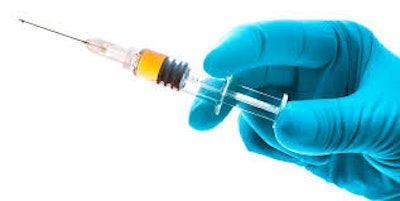
 Brigham Young University chemists believe that a new process could dramatically reduce the time and cost needed to produce vaccines.
Brigham Young University chemists believe that a new process could dramatically reduce the time and cost needed to produce vaccines.
According to a study published in Biotechnology Journal, BYU researchers utilized a method called cell-free protein synthesis, which makes proteins for drugs by combining DNA rather than growing them in a cell.
Engineers could use the process to generate large quantities of those proteins. The materials could then be freeze-dried and stored at many different locations for up to a year. When a virus strikes, workers could, in effect, simply add water to produce life-saving vaccines.
Conventional development of vaccines for pandemic influenza strains, by contrast, requires months of work and highly specialized equipment possessed by only a few labs in the U.S.
"You could just pull it off the shelf and make it," said chemical engineering professor Brad Bundy. "We could make the vaccine and be ready for distribution in a day."
BYU researchers already successfully demonstrated the process on the anti-cancer protein onconase.
In addition to providing much faster responses to disease, the method could also offer solutions for developing nations with sophisticated medical infrastructure and pass on the reduced production costs to all patients.
"The lifesaving cancer drugs we have now, the drugs for arthritis, the drugs with the greatest impact, are made out of proteins, not small chemical molecules," Bundy said. "This method takes full advantage of that to provide a quicker, more personal response."






















